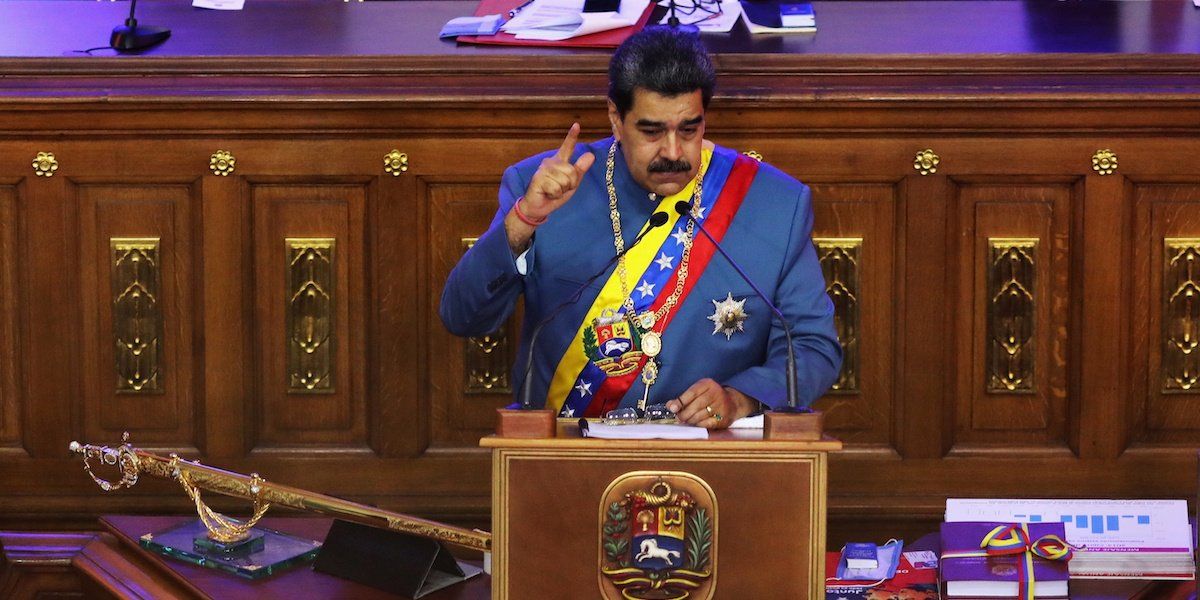On Sunday, Venezuelans will vote on a five-part referendum that boils down to one basic question: Does Venezuela, in fact, own a large chunk of neighboring Guyana or not?
The dispute over the Essequibo region – which is larger than North Korea and inhabited mostly by indigenous communities – stretches back more than 150 years (see our explainer here for more). But Venezuela’s strongman President Nicolas Maduro has ramped up tensions recently.
In part, he’s eyeing massive oil deposits that have been discovered there. But he may also be stoking nationalist feelings ahead of what will be a highly controversial – and not necessarily “free” – presidential election next year. Even prominent opposition figures have long supported Caracas’ claims on the territory (shades of the way that many dissidents in Putin’s Russia supported the annexation of Crimea.)
That means the referendum will almost certainly result in a resounding ¡Sí! But then what?
Rattling Essequibo could flare into a wider conflict. US forces regularly do joint patrols with the Guyanese military to protect local oil fields that US firms are developing. Pentagon officials reportedly visited the capital, Georgetown, this week to reassure the Guyanese, and Brazil put its local forces on high alert.
The risks are immense. But by asking the Venezuelan people to weigh in like this, Maduro may be uncorking nationalist passions that he will struggle to control.
